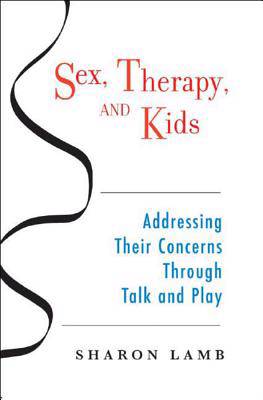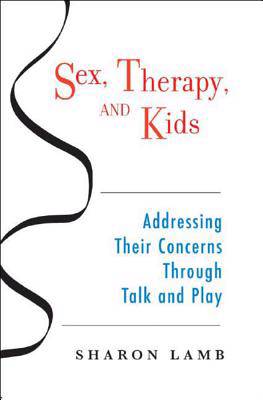
- Afhalen na 1 uur in een winkel met voorraad
- Gratis thuislevering in België vanaf € 30
- Ruim aanbod met 7 miljoen producten
- Afhalen na 1 uur in een winkel met voorraad
- Gratis thuislevering in België vanaf € 30
- Ruim aanbod met 7 miljoen producten
Zoeken
Sex, Therapy, and Kids
Addressing Their Concerns Through Talk and Play
Sharon Lamb
Hardcover | Engels
€ 34,95
+ 69 punten
Omschrijving
In Sex, Therapy, and Kids, Lamb demonstrates how to be sex-positive in a way that's responsive to the developmental stage of the child or teen and thus promotes honest conversations and successful therapy. Over the course of the book, she guides therapists through such core issues as recognizing and responding to the sexual play of children who have not been abused, distinguishing sexual abuse from normal play, understanding common worries of adolescent boys and girls, and helping gay and lesbian youth who are grappling with their sexual identity. There are also chapters on working with youth who have been abused, helping developmentally delayed teens, and collaborating with parents and families around the themes of sexuality and sexual behavior.
From Sex, Therapy, and Kids
Because I have been trained in humanistic, existential, psychoanalytic, family systems, and cognitive-behavioral strategies, my work represents a combination of these modalities. But an underlying focus of mine when working with children and adolescents is attending to the affect and affective sense surrounding a topic or play activity. This is particularly useful when working with sexual material in that sexual material in therapy can be overstimulating. . . . It is good to train oneself to observe this affective sense underlying talk or play, because if such overstimulating play is happening in the therapy session, you can bet it's happening outside the room. Therapy is the place in which these emotions, even bodily feelings, can be experienced in the safe presence of another who will protect and allow the time and space to process them and get some reflective distance. But how do therapists make stimulating material unstimulating to the child without simply pushing the child to leave the material alone and move on to more pleasant things, more manageable topics and emotions? This is crucial to my approach. Therapists can model a neutral, distanced reflective process with their clients that allows them to stay with the material. And therapists can help clients to distance themselves from it in order to talk about it and continue playing in a way that is productive. . . . [O]ver time it is good to develop a sense of what question will bring teens or children to a place where they can recover a therapeutic attitude toward these events and acts I've called approach displacement, but it means very literally displacing one's feelings from one's mind and body into the play.
From Sex, Therapy, and Kids
Because I have been trained in humanistic, existential, psychoanalytic, family systems, and cognitive-behavioral strategies, my work represents a combination of these modalities. But an underlying focus of mine when working with children and adolescents is attending to the affect and affective sense surrounding a topic or play activity. This is particularly useful when working with sexual material in that sexual material in therapy can be overstimulating. . . . It is good to train oneself to observe this affective sense underlying talk or play, because if such overstimulating play is happening in the therapy session, you can bet it's happening outside the room. Therapy is the place in which these emotions, even bodily feelings, can be experienced in the safe presence of another who will protect and allow the time and space to process them and get some reflective distance. But how do therapists make stimulating material unstimulating to the child without simply pushing the child to leave the material alone and move on to more pleasant things, more manageable topics and emotions? This is crucial to my approach. Therapists can model a neutral, distanced reflective process with their clients that allows them to stay with the material. And therapists can help clients to distance themselves from it in order to talk about it and continue playing in a way that is productive. . . . [O]ver time it is good to develop a sense of what question will bring teens or children to a place where they can recover a therapeutic attitude toward these events and acts I've called approach displacement, but it means very literally displacing one's feelings from one's mind and body into the play.
Specificaties
Betrokkenen
- Auteur(s):
- Uitgeverij:
Inhoud
- Aantal bladzijden:
- 304
- Taal:
- Engels
Eigenschappen
- Productcode (EAN):
- 9780393704792
- Verschijningsdatum:
- 1/09/2006
- Uitvoering:
- Hardcover
- Formaat:
- Ongenaaid / garenloos gebonden
- Afmetingen:
- 163 mm x 241 mm
- Gewicht:
- 662 g

Alleen bij Standaard Boekhandel
+ 69 punten op je klantenkaart van Standaard Boekhandel
Beoordelingen
We publiceren alleen reviews die voldoen aan de voorwaarden voor reviews. Bekijk onze voorwaarden voor reviews.











